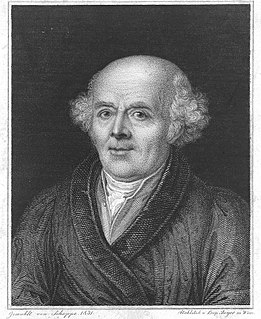A Quote by Plato
Again, truth should be highly valued; if, as we were saying, a lie is useless to the gods, and useful only as a medicine to men, then the use of such medicines should be restricted to physicians; private individuals have no business with them.
Related Quotes
Were I disposed to consider the comparative merit of each of them [facts or theories in medical practice], I should derive most of the evils of medicine from supposed facts, and ascribe all the remedies which have been uniformly and extensively useful, to such theories as are true. Facts are combined and rendered useful only by means of theories, and the more disposed men are to reason, the more minute and extensive they become in their observations
The history of science should not be an instrument to defend any kind of social or philosophic theory; it should be used only for its own purpose, to illustrate impartially the working of reason against unreason, the gradual unfolding of truth, in all its forms, whether pleasant or unpleasant, useful of useless, welcome or unwelcome.
Anarchism may be described as the doctrine that all the affairs of men should be managed by individuals or voluntary associations, and that the State should be abolished..... Nor does the Anarchistic scheme furnish any code of morals to be imposed upon the individual. "Mind your own business" is its own moral law. Interference with another's business is a crime and the only crime, and as such may properly be resisted.
The cost of research, development and testing of a new drug is vastly greater than the cost of each dose produced. How should we pay for new medicines? Innovators should be rewarded according to the impact of their medicine, and people should contribute to these rewards according to their ability to pay.
Science only means knowledge; and for [Greek] ancients it did only mean knowledge. Thus the favorite science of the Greeks was Astronomy, because it was as abstract as Algebra. ... We may say that the great Greek ideal was to have no use for useful things. The Slave was he who learned useful things; the Freeman was he who learned useless things. This still remains the ideal of many noble men of science, in the sense they do desire truth as the great Greeks desired it; and their attitude is an external protest against vulgarity of utilitarianism.
The orthodox school has witnessed for centuries that nature itself has never once cured any existing disease with another dissimilar one, however intense. What must we think of this school, which nevertheless has continued to treat chronic diseases allopathically, with medicines and formulas that can only cause a disease condition -God knows which -dissimilar to the one being treated? Even if these physicians have not hitherto observed nature attentively enough, the miserable results of their treatment should have taught them that they were on the wrong road.
Reason, if consulted with, would advise, that their children's time should be spent in acquiring what might be useful to them when they come to be men, rather than to have their heads stuff'd with a deal of trash, a great part whereof they usually never do ('tis certain they never need to) think on again as long as they live: and so much of it as does stick by them they are only the worse for.








































